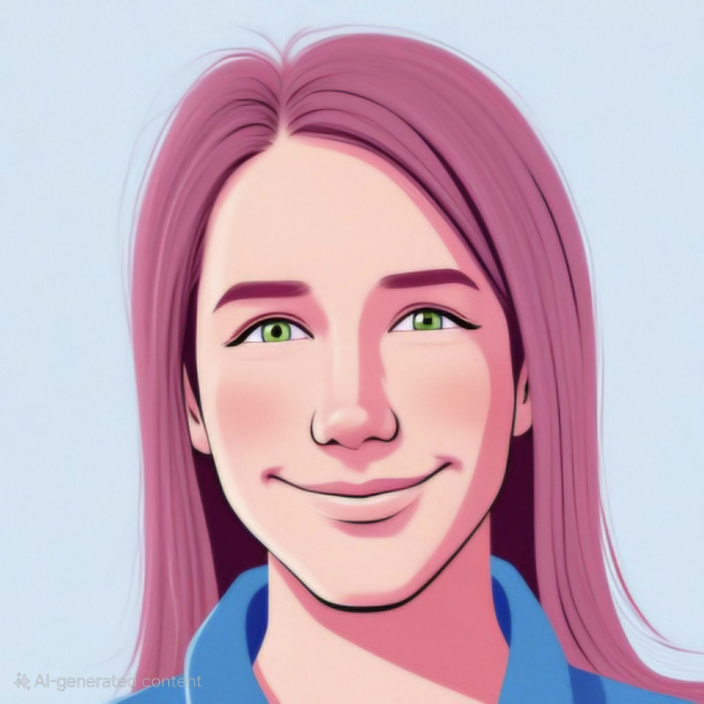This minisode was recorded in-person at the 2024 AmeriFlux Annual Meeting in Berkeley, California.
Transcript
Jess: What's your name?
Jackie: Jackie Matthes!
Jess: Are there any side projects you're currently pursuing in other fields?
Jackie: I recently got into quilting, and started thinking about the ways that we could visualize patterns in our data through quilts. So, I’m working on a phenology quilt of Harvard Forest data, looking at the timing of leaf-out. I'm trying to make it a circle, which is a challenge. But I want to be able to show the cycling through the seasons, too and sort of, like, how things are changing with leaf-on and then leaf-off.
Jess: Is it difficult with seasonal variability or annual variability?
Jackie: I think that the data are, of course, variable. Nature varies from year to year. But, as we have more, larger data, we can really see trends and be confident in them that things are changing.
Jess: Thanks, Jackie!

Jess: What is your name?
Chris: Christopher Still.
Jess: What non-science audiences are related to your work or its outcomes?
Chris: Management agencies are really impressive in this work because they want to know which tree species are most at risk, and which ones they might want to plant for the future. And then, the general public is very interested. In the Northwest, people love trees and forests. So, there's a lot of concern about that as well.
Jess: And your work is focused on carbon update and changes in greenhouse gases under climate warming?
Chris: Generally, yeah. A lot of what I work on recently is, uh, trying to look at the whole organism and ecosystem responses to extreme events like heat waves. Carbon is definitely part of it. But also, water and demography and damage to the whole planet.
Jess: How are species coping with wildfires and extreme heat?
Chris: Birds are heavily affected by heat. Wildfires affect, I think, everything pretty negatively. But I don't know a lot of reports - there was definitely some stuff after the heat dome - on marine organisms and there was massive die-off of nearshore marine organisms from that heat wave.* And then also there are marine heat waves, which are different. There's been a lot less focus on terrestrial animals from the heat. More so on fires, less from the heat.
Note: This is reference to June 2021 Heat Dome event in the Pacific Northwest, USA. Read more.
Jess: When it comes to heat, what is the main driver in this region (the US Pacific Northwest)?
Chris: Yeah, a lot of factors are there. The actual, sort of, atmospheric dynamics that set up these heat domes are pretty complicated. But there's also a component, like, you set up this big blocking ridge of high pressure, and there are feedbacks with the land surface, with soil moisture declining. So, it gets pretty complicated explaining what drives these heat events. There was a study that suggests the heat dome greatly enhanced wildfires all across North America the rest of the year. So, heat, I feel like, is this overlying thing that every living organism and every biological process is strongly sensitive to. We focus a lot on things like drought, which is lower precipitation but also more evaporation, from heat. They’re connected, but I think heat is this thing that sits on top of these other events. It accelerates wildfires, it accelerates droughts, and it is damaging in its own right.
Jess: So, is the state funding the environmental management?
Chris: Not really, I think they're just trying to respond. I mean, forests are besieged by so many things. Most of the focus has been on pathogens of different sorts. Beetles and fungi, those interact in a really complicated way with drought and with heat. Heat has been ignored to some extent, drought has been the overriding concern. But I think heat is going to rise up soon in the things that people are worrying about.
Jess: When I think about stakeholders for your sites, I would also think about children and the elderly.
Chris: Absolutely.
Jess: Especially because the elderly are so vulnerable to extreme heat.
Chris: Yeah, that one is really fascinating and complicated. I didn't have time to talk about it, but there was a massive human impact off this event. Hundreds and hundreds of people, mostly unhoused, died. Maybe in the thousands. There's massive under-reporting of heat-related deaths. Social service agencies and cities try to do things like opening up cooling centers and having fountains going. There are things they can actually try to do, but there are limitations.
Heat is a natural disaster that kills way more people than any other natural disaster. One of the challenges with it is that unlike a fire, hurricane, landslide, or earthquake, those are visually very apparent and shocking, but it’s really hard to look out and say, “Oh, there’s a heatwave.” You don’t really see it with your eyes. So, the deadliness of heat waves is way underappreciated.
One thing cities are trying to do is plant more trees. That helps immensely, because there's massive inequality in tree cover and the shade they provide and the cooling benefits. Some cities like Portland and LA are trying to really ramp up tree cover to help with that, and then brighten roofs and streets.
Jess: Thank you.
Note: This interview was following Dr. Still’s presentation on Oregon’s summer heat dome during the AmeriFlux session, “Flux Data for Climate Impacts”. More than 650 deaths were caused by the heat dome, according to the USDA Northwest Climate Hub.

Jess: What is your name?
Sophie: I'm Sophie Ruehr.
Jess: How do science conferences impact your work?
Sophie: I get to connect with my friends and their work inspires me to think in new ways.

